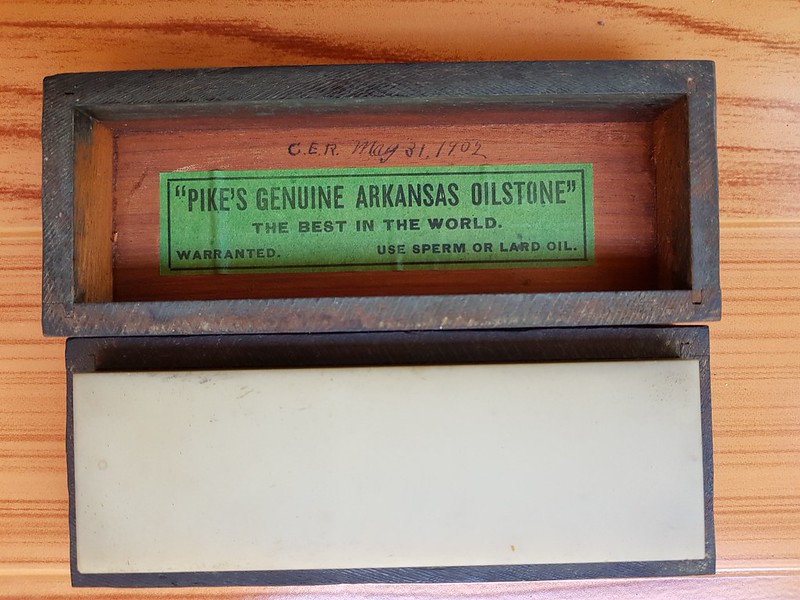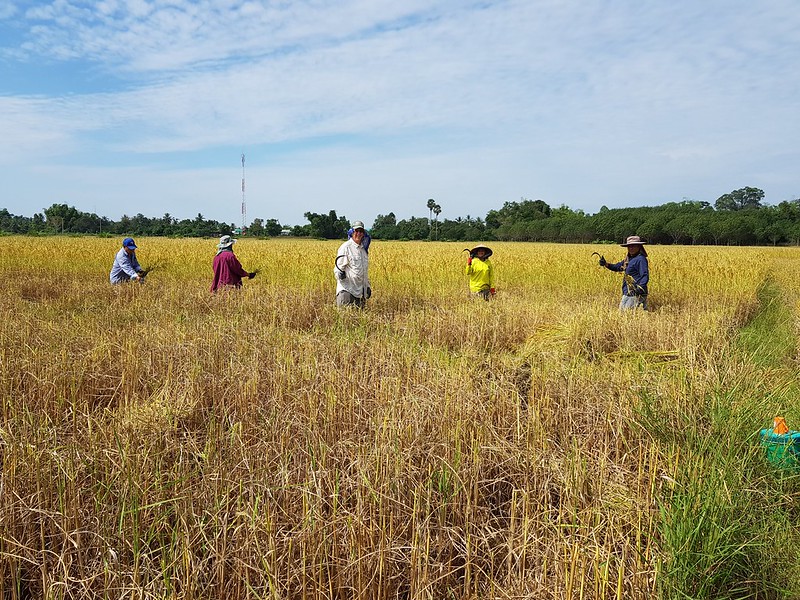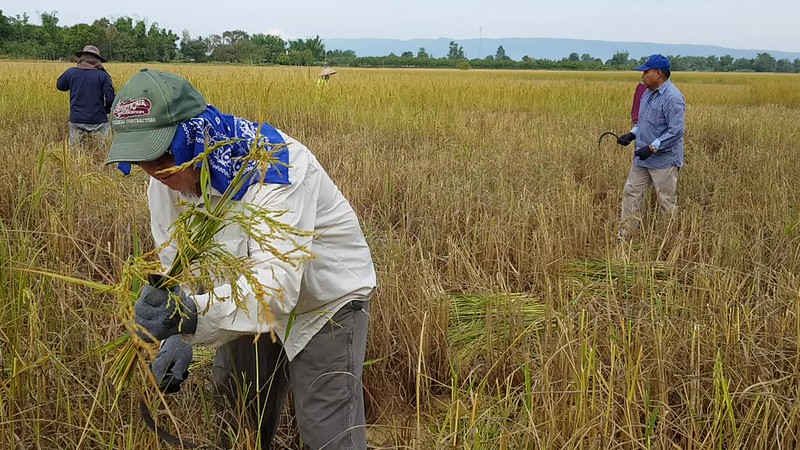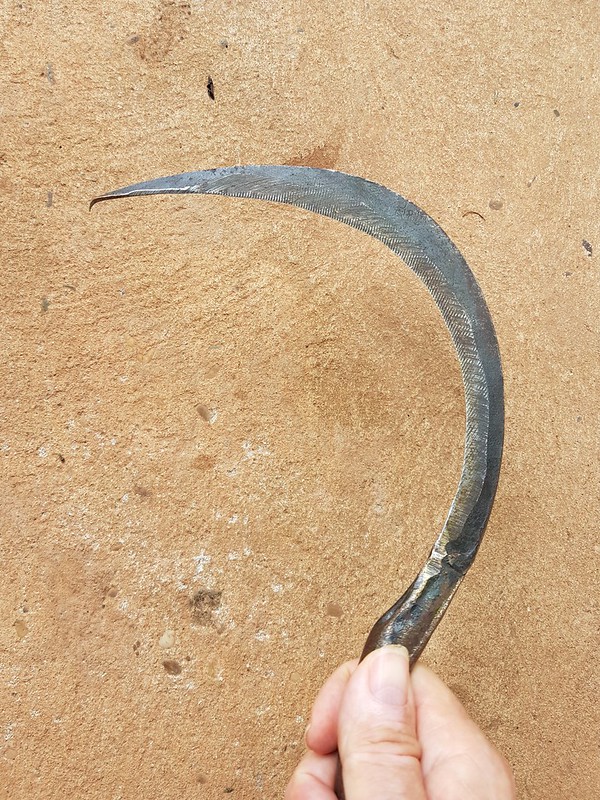I dug out my sickle to see what condition it was in. The sickles they make here have somewhat of a serrated edge, which makes them tend to be self-sharpening—as long as you only cut rice. Ours however has been used to cut weeds close to the ground and so has had numerous run-in with gravel—so I knew it would need some sharpening.
I put a bit of an edge on the sickle with an ordinary stone. The I figured I would finish off with a finer stone, so I dug out an Arkansas stone that I inherited from my dad.
 |
| Arkansas stone from 1902 |
Upon opening the stone I noticed the writing, "C.E.R. May 31, 1902". C.E.R. are the initials of my father's step dad. He was born in 1865, so he would have been about 37 when this stone was purchased. My step-grandfather was a watchmaker, and he had an cabinet of small wooden drawers filled with all kinds of interesting tools, including this Arkansas stone. He died the year after I was born and although I have seen a photo of me with him, I certainly don't remember the experience.
I never remember my father using these kinds of sharpening stones. Usually things were sharpened with a file or with a electric grinder. So the stone remained in really good condition. Only in my later years did I begin to appreciate a good Arkansas stone to put a keen edge on a knife. And while these days I'm likely to use a diamond stone for a quick sharpening, there is something therapeutic about putting some oil on a stone and rubbing the knife edge back and forth, though I did not use sperm oil or lard oil as the stone suggested.
The sickle sharpening was a success, and I cut rice for about 4 hours—my back giving out before my arm. Actually, it was the heat that wore me out by about 2 in the afternoon.
 |
| Rice Harvesters |
 |
| Rice harvesting video |
It was a good feeling to put to use this old stone to sharpen some tools. Even though it has been around over 100 years, it still does what it is supposed to do.
I've been thinking about how this relates to our Christian life. Will my ministry bear fruit that will stand the test of time? Will what I build last not just 116 years, but on into eternity?
Paul writes:
11 The foundation that has already been built is Jesus Christ, and no one can build any other foundation. 12 People can build on that foundation using gold, silver, jewels, wood, grass, or straw. 13 But the work that each person does will be clearly seen, because the Day? will make it plain. That Day will appear with fire, and the fire will test everyone's work. 14 If the building they put on the foundation still stands, they will get their reward. 15 But if their building is burned up, they will suffer loss. They will be saved, but it will be like someone escaping from a fire.
1 Corinthians 3:11-15 (ERV)
A term we use in our ministry here is "multiplying disciples". In fact, this gives rise to the new name of our organization (Multiply). The idea is the show others how to be Jesus-followers so that they also will do the same thing. Its not an easy task, and we never really know how long-lasting our fruit will be.
One day, the Arkansas stone I used to sharpen the sickle will no longer be of use. But hopefully, those we have nurtured in the faith will bear fruit that lasts for many generations.


No comments:
Post a Comment